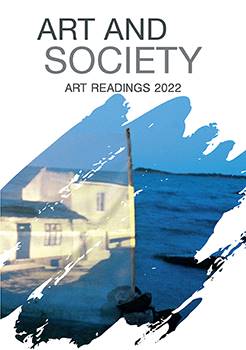Архивите като хранилище на колективната и културната памет
Archives as repository of the collective and cultural memory
Author(s): Ani YanevaSubject(s): Theatre, Dance, Performing Arts, Fine Arts / Performing Arts
Published by: Институт за изследване на изкуствата, Българска академия на науките
Keywords: memory; past; oblivion; archive; history; culture
Summary/Abstract: The study is part of a dissertation on The Role of Personal Archives Funds in the Construction of Historical Art Knowledge (on Materials from the Archives of Lubomir Tenev and Alexander Alexandrov). The past is easily forgotten and its complete recovery is impossible. Memory is selective, but what a person collects in his personal archive is a way to restore and preserve the past, as well as to make the necessary analyses and conclusions. The idea is to arrive at a truth that is socially useful and to learn a lesson. Since collective memory is known to have as a carrier a group limited in space and time. Thus, through a personal archive one can trace what was happening, the historically important for a given period in which the archival collector lived. In the case of the personal archives of Lyubomir Tenev (theatre critic) and Alexander Alexandrov (film critic), who lived and worked during the same historical period, we can trace the development of cinema and theatre through their archives and how this is preserved in the collective memory. It should be noted that this is a difficult period for art, since it was under the censorship of socialism. This study is important because it can trace how the artists themselves reacted to the situation, how censorship and freedom of art co-existed, how the collective memory preserved the development of art and how the political situation influenced this process. Personal archives play an important role as a repository to safeguard and later display preserved memories, which could be used as historical sources. The documents collected in an archive are carriers of authenticity and everything reflected in them is true, which can be used to restore a past event. They are closest to life and reflect it most fully, as well as provide an opportunity to trace the development of art and how it affects society. This praper will focus on personal archives in the context of a repository of collective memory and as one of the factors in constructing historical art knowledge.
Journal: Изкуствоведски четения
- Issue Year: 2022
- Issue No: 2
- Page Range: 266-274
- Page Count: 8
- Language: Bulgarian
- Content File-PDF

